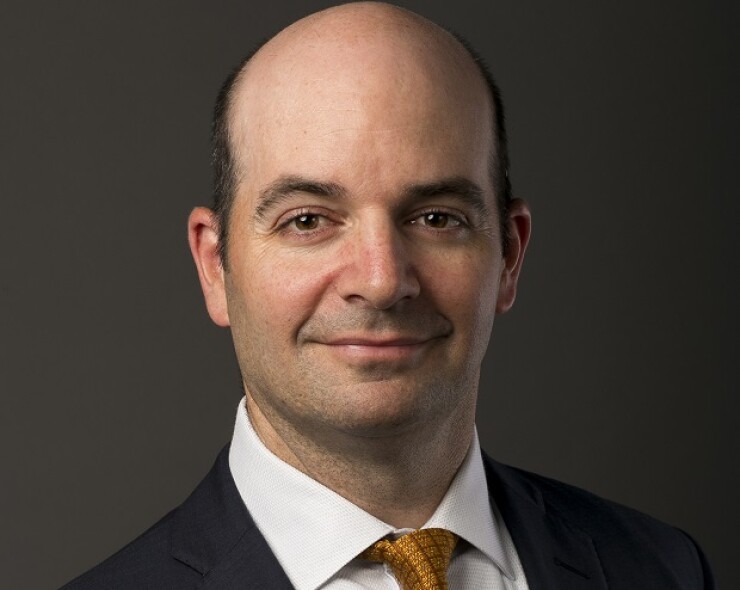
The fate of some Cetera Financial Group advisors' savings, totaling somewhat "less than $100 million" in deferred compensation accounts, rests in the hands of a bankruptcy judge.
However, Cetera is assuring advisors that their savings will not be wiped out by its reorganization, thanks to its pre-packaged Chapter 11 bankruptcy plan, which is supported by 86% of its creditors, according to a court filing.
"We have gone to significant lengths to ensure that our restructuring process will have absolutely no impact on our advisor deferred compensation plans," Cetera spokesman Joe Kuo says.
The prospect of the bankruptcy judge rejecting the plan proposed by Cetera parent RCS Capital is "extremely unlikely," according to RCS' chief restructuring officer, David Orlofsky. Orlofsky is also senior managing director of the corporate restructuring firm Zolfo Cooper.
"The first and second lien lenders have already consented to the restructuring plan and its details provided within our filings. Since there are no other creditors who are considered impaired, no other creditor is entitled to a vote," Orlofsky says in an email.
- Read more:
40 Cetera Advisors Depart
Cetera advisors currently may deposit a maximum of $150,000 of their annual income into the accounts, in order to take distributions later at lower tax rates, often after retirement, according to a 2015 description of the program provided by a Cetera advisor. The money is held in so-called rabbi trusts that can be wiped out in some bankruptcies, according to an explanation on Fidelity's website.
"The plan essentially represents a promise by the company to pay you back," the Fidelity description continues. "The funds in this trust are still part of the company’s general assets, and would be subject to creditors’ claims in a corporate bankruptcy."
Orlofsky also calls this prospect all but impossible.
The "lien lenders could have availed themselves of numerous remedies, which they chose not to do, because the overarching goal was to support the advisor base and create the most expedited restructuring process possible," he says.
They "chose not to put a claim on the funds in the rabbi trust," he adds. Significant opposition "is simply not going to happen. Period.”
CREDITORS' SUPPORT 'BINDING'
RCS did include the total value of the advisors' savings in the consolidated $1.97 billion of assets RCS declared in its bankruptcy petition, an RCS spokesman confirmed.
However, Cetera's rabbi trust is excluded from collateral amounts provided for creditors, according to a filing in the case.
RCS filed for a pre-packaged bankruptcy, with the blessing of most creditors, in January. Once filed, those creditors' votes of support are binding, says law professor and bankruptcy expert Richard Squire, of Fordham University's School of Law in New York.
However, a judge must rule in favor of the plan for it to succeed, Squire says.
ONE FATAL OBJECTION?
Even objections from a small minority of creditors could knock it off track, Squire adds.
"If any of those objections are found to be valid by the court," he says, "then the court will tell the debtor that it has to renegotiate its bankruptcy plan. Then everything that was binding is back on the table."
Orlofsky calls this prospect "irrelevant" to the case at hand.
“Speaking hypothetically, even if a party that is not an impaired creditor files an objection, that doesn’t mean the extreme and speculative scenario noted above happens," he says.
Thus far, only two creditors have filed objections to the plan. One is a disgruntled landlord in Arizona, who says RCS left his commercial property in an inadequate state, filled with discarded personal items.
The other objection came from Nicholas Schorsch, RCS' former executive chairman, and other associated parties. They requested an extension of time to review the highly complex details of the bankruptcy plan by 30 days from the end of March to the end of April.
The court granted the extension.
SCHORSCH OPPOSITION NOT EXPECTED
"We do not believe that any objections by Nicholas S. Schorsch or [his associates] will have an impact on the status of the prepackaged bankruptcy, the deferred comp plans or on the existing timeline" of the case, Orlofsky says.
Two Cetera advisors, both of whom asked to remain anonymous, say they have substantial funds in their non-deferred savings accounts.
One advisor based in the West saved more than a million dollars into his plan. Another in the Midwest says his account size falls below that level, but he knows others with well over a million dollars in each of theirs.
BIG TAX BILLS
"We are all of the same opinion," the latter says of himself and his fellow advisors. "I think people are leaving the money in the plan because they believe the company will be restructured and perform well in the future."
Or it could be the fact that, if they leave their broker-dealer, the advisors must take the entirety of their savings in the funds in a lump sum, triggering tax bills of up to half the value of the savings, another advisor says.
Read more:





